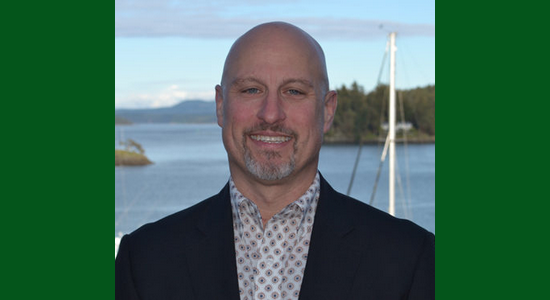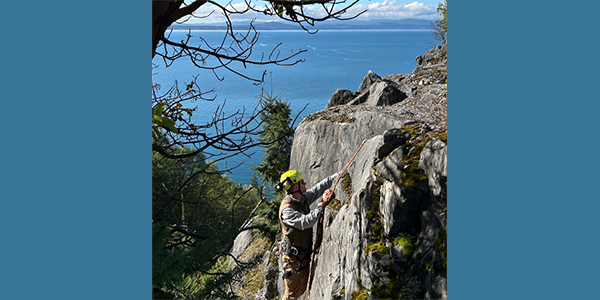— by Susan McBain —
The monthly report of Fire Chief Scott Williams to the Orcas Board of Fire Commissioners (BOFC) started with perhaps the most interesting statistic of the evening — the increase in calls for January through October of this year over the same period last year.
The number of calls over those months rose by almost 100, or about 12 percent. During the summer, the number of overlapping calls also rose substantially, from 20 percent of all calls to 27 percent. If the rise continues, the department’s staffing needs will likely increase as well. Rescue and emergency medical service calls constituted almost 68 percent of all calls this year; fire calls were about 2%, and calls for other hazardous condition were 1.5 percent (the rest were non-urgent calls).
The increases caused a rise in hours and wages in the summer. However, the department generally remains at or below budget. Cost recovery amounts (the amounts recovered by the department for calls for medical services) have risen, and no significant purchases have occurred to date this year. Orcas Fire and Rescue’s (OIFR) equipment and apparatus are currently undergoing comprehensive maintenance and repair. Once urgent repairs are done and a maintenance plan is in place, Williams will consider what new equipment may be needed. A subcommittee of the Board will meet with him to discuss a draft budget for 2018.
Two per-diem paramedics have been added to OIFR’s roster, Dave Zoeller and Kasey Jo Weigley. And in 2018, Washington State’s North Sound Accountable Communities of Health program will fund one or two community paramedics for San Juan County for the next four years.
The Board also heard about these developments:
- Improvements in emergency communications, such as use of mobile hotspots and mobile repeaters, are continuing throughout the County.
- OIFR is developing a new website, which should be up and functioning by the end of the year.
- Kasey Jo Weigley will teach an EMT training course in November, and the department is planning another Fire Academy in February 2018 to train volunteer firefighters.
- This month OIFR first responders offered two Stop the Bleed courses for the community, designed to teach volunteers how to stop uncontrolled bleeding in victims of mass casualty events, whether natural or human caused.
- The Board discussed the advisability of one or perhaps two public comment periods during meetings, one near the beginning and one near the end, with limits on how long a speaker may talk. Board members were concerned that questions or comments from the public receive responses that are timely, but also accurate. The Board will vote on the issue at a future meeting.
**If you are reading theOrcasonian for free, thank your fellow islanders. If you would like to support theOrcasonian CLICK HERE to set your modestly-priced, voluntary subscription. Otherwise, no worries; we’re happy to share with you.**








Susan, thanks for sending out this report and keeping us informed.
Ditto Jean’s comments.
Thank you!